If someone is going to hold your life in the palm of their hand, literally, it’s going to be your cardiologist and only the best will do. So, if you are a cardiologist and you want to be hired at a new hospital you need to show the hiring manager that you are the best cardiologist they will find.
How do you do that? Come with us and we’ll show you.
Or use this resume builder that will do it for you for completely free.
How do I format my resume?
You will need a professional format as a cardiologist is a serious job. It’s best if you use the reverse-chronological resume format as that is more professional, highlights your work experience and hirers are more used to it.
An example of what a cardiologist resume should look like

What sections should I include in my resume?
A resume should contain a few common sections such as your contact details, and experience but as a cardiologist you should also include certain key features such as your certifications, specializations etc. Take a look at the sections that have the most impact.
Contact Details
Hiring managers need to know how to hire you. For that, you’ll need to add your name, profession, an email address and telephone number. It’s also a good idea to include your mailing address as you may not always have the time to check your phone or email.
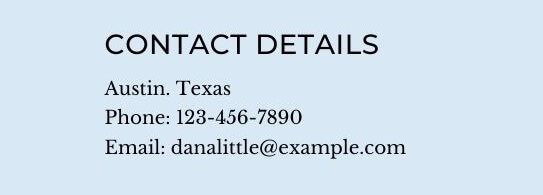
Resume Summary
A resume summary is two-three lines detailing your experience and plans. It could be short sentences or even one complete sentence. You should also have an eye-catching resume summary as should convince hirers to read your resume in 7 seconds or less.
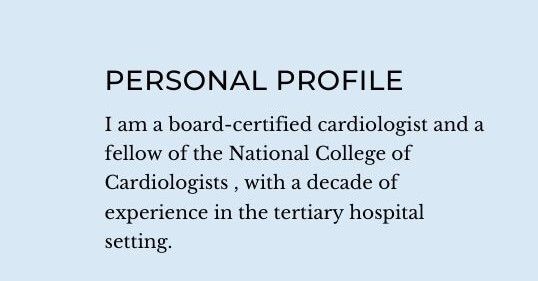
Not sure what words to use to make your resume more attractive? Try our action word finder to see which words will jump out of the page at recruiters.
Work Experience
Your work experience can be the deciding factor in bringing you to the forefront of other candidates. You need to mention the hospital you worked at, how many years you worked there in month/year - month/year format and the designation of your post. You should also add two or three bullet points on the duties that you had at the hospital with quantitative data so that you impress the recruiter.
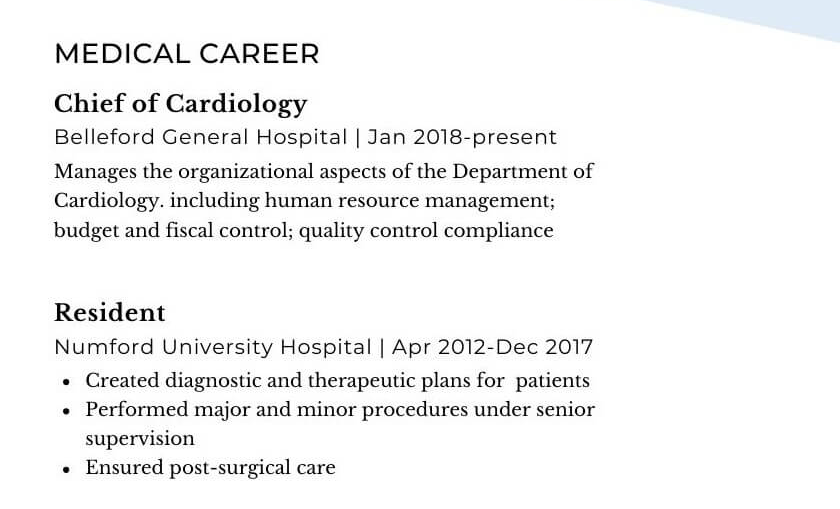
You can use our buzzword scanner to avoid buzzwords in your resume. Try it out.
Education
Your education matters as recruiters will want to know your level of training. It’s a good idea to put your most recent educational qualifications first, such as where you went to medical school, then your college degree. You don’t need to add your high school diploma in this section as it is better to start with your college degree as it is more recent.
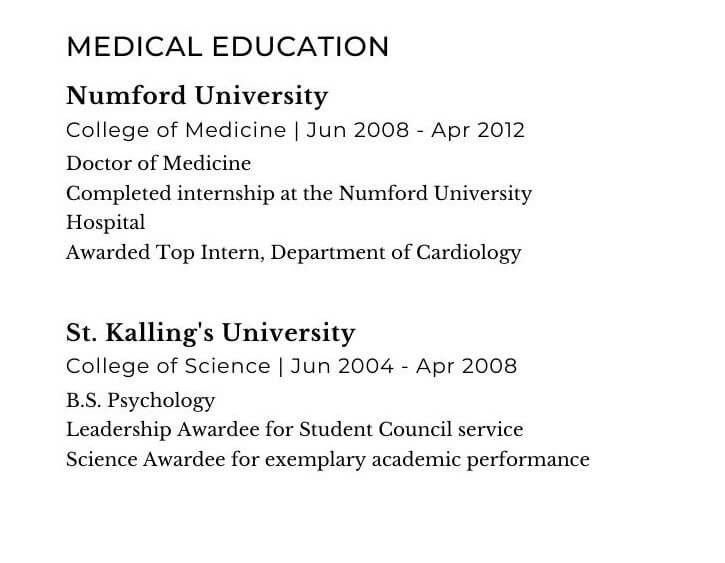
Skills
You need to list the skills that you use as a cardiologist in this section. It’s also good for you to list some soft skills that you have such as teamwork or patient care.
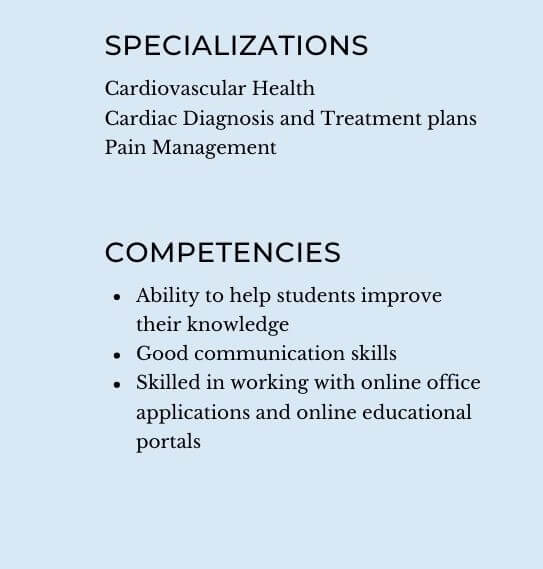
Certifications
As a cardiologist you need special training and certifications in a variety of medical practices. It’s a good idea to list all your certifications in your CV so that hiring managers know that you are skilled in many things and exactly what you bring to the table.
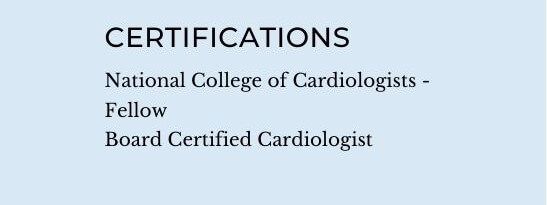
For more articles with handy tips to get your heart thumping on your resume, see our career guides blog or our resume samples page.

